N. Korea Deserves a Hard Kick for Abusing Its Soccer Team (Update)
The sport’s international governing body is looking into reports that the defeated players were exhibited in Pyongyang as targets of condemnation Kim Jong Il must be confronted in this caseThe sport’s governing body is looking into reports that the defeated players were exhibited and denounced.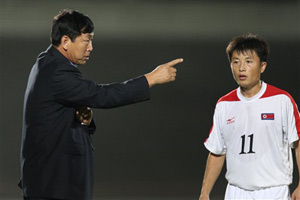
Update on Aug. 25, 2010: FIFA Drops Probe Into N. Korea’s Alleged Abuse of TeamFIFA announced Aug. 25 it has closed its inquiry into widespread reports that North Korea punished its soccer team and coach after their poor showing at the World Cup. The decision was based at least in part on a letter from the North Korea soccer association saying that, to use FIFA’s sparse wording, there had been no “sanctions [against] the coach and that the reports on this matter were baseless.” There was no description of how or whether FIFA otherwise tried to find out whether the team and coach had been humiliated at an official event in Pyongyang. The world federation said merely that it “checked all of its sources.”
***
Since going into the family business, North Korea’s Kim Jong Il has developed a reputation of being one of the world’s oddest governmental leaders. But odd plainly doesn’t do justice to Kim, who matriculated in the University of Weird many moons ago and has now accumulated several advanced degrees there. Sometimes it seems that the man assiduously cultivates his image for eccentricity — albeit behind veils that cover him and his land — and indeed some geopolitical observers maintain it’s all part of a well-crafted scheme he hatched to keep other countries wondering just what the hell Dear Leader might be capable of doing in the international arena.
Many of the adjectives applied to Kim by outsiders have been less than gentle, and in 2008 some evil-minded Western academics tossed in their two cents: A couple of University of Colorado professors produced a paper headed “Is Kim Jong-il like Saddam Hussein and Adolf Hitler? a personality disorder evaluation.” In guessing at its conclusions you would be correct if you followed the flashing neon arrow in the study’s title. “For the personality disorders [of Kim and the two other subjects], it appears that a ‘big six’ emerged: sadistic, paranoid, antisocial, narcissistic, schizoid and schizotypal,” the authors wrote. “All three dictators also showed evidence of psychotic thought processes.”
Kvetch, kvetch, kvetch. Is that any way to talk about one whose birth, according to some of his countrymen, “was foretold by a swallow, and heralded by the appearance of a double rainbow over the mountain and a new star in the heavens”?
Maybe the rap that much of the world puts on Kim comes out of envy. I mean, when was the last time your every request, no matter how selfish or bizarre or extreme, was answered with “Yes, immediately, Great Father”? The ballad from Trey Parker’s “Team America: World Police” movie notwithstanding, Kim seems to have a good thing going on, at least for himself.
Because Kim and his nation are so secretive, it’s hard to know what’s true about him and what’s not. Also, much of the news from the communist country comes by way of South Korea, which technically is still at war with the North, or through Radio Free Asia, which is funded in part by the U.S. Congress. So, with that caveat, read on.
A few items about Kim Jong Il’s lifestyle:
• Live lobsters were airlifted to him daily when he was traveling in his private armored train. In the 1990s when his nation was starving, he dispatched his personal chef to Japan for sushi, to Iran for caviar, to Denmark for bacon, to China for McDonald’s hamburgers. His former chef writes: “Before I cooked rice for him, a waiter and kitchen staff had to inspect it grain by grain” to ensure it was perfect.
• He has a library of more than 20,000 movies.
• He likes a good drink. Kim’s annual expenditure for Hennessy cognac is $700,000, and at a 2000 summit with South Korea’s president he was seen knocking back 10 glasses of wine. His wine cellar contains 10,000 bottles.
• He has dozens of villas.
• He and his family have a large collection of automobiles, including Mercedes-Benz, Ford, Cadillac and Lincoln models.
• He is a horseman. Those who scoff at tales of his prowess as a rider are invited to click here for visual evidence (which may or may not be genuine) that he can at least stay aboard at a gallop. In recent days Kim bought nine elite Orlov trotters from Siberia.
• He maintains a harem of comely girls known as Gippeumjo—Pleasure Brigade or Joy Division. You can check out the libidinous (and cruel) doings here.
If at this point you still have any doubt, let me clear it away: Yes, the sun does rise and set on Mr. Kim, as well it should. Is he not, as many in North Korea insist, a golfer who makes several holes in one during each round? An authority on movies and the Internet? A composer and an author who has written six operas and more than a thousand books?
And that’s just the short list. Think Superman, Einstein, Mozart, Proust and Hefner compressed into one pudgy little god-man who wears jumpsuits, platform shoes and high hair. What’s not to like about the guy?
Well, there’s one thing in particular I don’t like about the guy — beyond his alleged sinking of a foreign ship, firing a missile over a neighboring country, testing nuclear weapons, pursuing wrongheaded policy that starves people, kidnapping foreigners, belligerently thumbing his nose at the community of nations and in general being a first-class jerk (none of which is exclusive to Kim in terms of world history). I’m referring to his abuse of his own nation’s athletes.
If you say that’s small potatoes compared with North Korea’s other sins, I answer, yeah, you’re right, but the misuse of power and the transgressions against the ideals of sports and human decency are not inconsequential, and they deserve international dissemination, discussion and response.This year’s World Cup was an extraordinary event for North Korea, which was in the finals for the first time since 1966 and for only the second time in its history. In another historic development, Pyongyang approved the first-ever live broadcast to North Korea of a match played by the national football (soccer) team on foreign soil.
Much was on the line for the so-called Hermit Kingdom, and Kim Jong Il was not about to pass up an opportunity to mine propaganda gold from some prospective victories in the South African tournament. A good showing would be seen as a huge boost for Kim Jong Un, a son of Kim Jong Il and believed to be the next in line to rule North Korea. The other side of the coin: A bad showing would cause a serious loss of face, which isn’t something the Kim clan accepts gracefully.
There was no storybook ending in South Africa for the figurative children of Dear Father: The Democratic People’s Republic of Korea lost all three of its matches, including one by a thumping score of 7-0 … and that was the game telecast live to the folks back home.
Still another embarrassment fell on Kim when it became known that many of the “North Korean fans” wearing team colors in the stands were actually Chinese whom Pyongyang had recruited, not people who had somehow managed to make the trip from a country where most are too poor to travel great distances and where heavy travel restrictions exist.
There have been many reports about what went on in North Korea after its team was knocked out of the competition in June, having been bested by Brazil, Portugal and Ivory Coast. Once again, the flow of information was very sluggish and uncertain because of the country’s lack of press freedoms, but here’s a sketch of the news as reported on Truthdig (see link to The Guardian), on Britain’s Telegraph website and by other sources.
On July 2 the members of the team were summoned to a large auditorium at the Working People’s Culture Palace in Pyongyang, the capital, in order to be publicly humiliated for betraying the nation’s “ideological struggle” and, specifically, dictator-in-waiting Kim Jong Un. Two Japanese-born team members were exempted from the spectacle of debasement.
The players were placed on a stage before more than 400 people, including public officials, and then were criticized by a sports commentator and other athletes. They also were required to denounce their head coach. Overall, this delightful exercise consumed six hours.
It was widely reported that the coach had been dismissed from North Korea’s ruling party and forced to work as a construction laborer — and even that his life might be in danger — but several websites cast doubt on these accounts.
The coach, Kim Jong Hun, had made comments during the World Cup supporting his players and taking responsibility for losses. After a narrow defeat by Brazil, which is a five-time world champion, Kim Jong Hun said: “As the coach, especially against Brazil, the fact that we scored a goal, I was very happy. I was proud of my players so that’s why I showed emotion when we scored.” Later in reacting to the 7-0 drubbing by Portugal, he said his men had “played to their full potential” and “it was my fault for not playing the right strategy.”
Assuming North Korea’s World Cup losses really were caused by “not playing the right strategy,” a logical question would be: Who originated the strategy? For most teams, the answer would be “the coach,” but North Korea is a special case. I think you know where this is going.
Here’s what South Korea’s biggest newspaper, The Chosun Ilbo, had to say:
Quoting a source, RFA [Radio Free Asia] reported that after watching the match against powerhouse Brazil, in which North Korea recorded a respectable 1-2 loss with a tight defense strategy, Kim Jong-il said that although the team played the first half well, it lost because it only focused on defense in the second half. He then gave orders for the team’s defenders to be positioned forward and even specified where each defender should be standing in the field.
According to the source, Kim “gave orders twice” to a responsible official dispatched to South Africa during the game against Portugal on June 21. The orders were delivered to North Korea manager Kim Jong-hun and implemented in the game. Despite the widening gap in the score, the North Koreans team stuck to their hopeless strategy and lost 0-7.
On more than one occasion the coach has confirmed that Kim Jong Il takes an active role in soccer strategy, claiming Dear Leader’s “advice” or “guidance” sometime comes via a phone (invented by the dictator) hidden in the coach’s ear. One South Korean official said: “The invisible-mobile-phone part may be silly, but it’s probably true that Kim Jong Il’s orders are delivered to the coach.”
Among some followers of soccer, the Pyongyang denunciation of the athletes was seen as a milder form of the “motivation” meted out by Uday Hussein, the Iraqi dictator’s elder son, whose infamous retribution against losing players was sadistic and physical in the extreme. In addition to psychologically traumatizing them, “The Butcher’s Boy” sometimes tortured players in stomach-churning ways. Another controversy that arose out of World Cup 2010 came when Nigeria’s new president, Goodluck Jonathan, angrily reacted to his country’s disappointing performance by imposing a two-year ban on team play. However, in the face of a threat from FIFA, soccer’s international governing body, Jonathan quickly lifted the suspension. FIFA had set a deadline for compliance, saying that if the Nigerian ruling was not overturned, the African nation’s soccer federation would be expelled from the world body and would be denied $8 million it was to receive for the team’s World Cup participation. That tough stance worked.
Under FIFA statues — which have power over national soccer associations or federations, not directly over nations themselves — governments may not interfere with operations of teams. Article 13.1 (g) declares that member associations are obligated “to manage their affairs independently and ensure that their own affairs are not influenced by any third parties.” FIFA’s statue document goes on to say violation of that provision may lead “to sanctions even if the third-party influence was not the fault of the Member concerned.”
What this means is that if a government meddles with a soccer team, FIFA can suspend the nation’s soccer association and thereby ban its teams from international competition under the FIFA umbrella. Put another way: Governments, keep your hands off soccer or we will kick your teams out.
The financial impact of a ban can be considerable. “A suspension goes beyond the suspension of the national teams,” a FIFA spokesman said last month. “It also freezes financial help. …”
FIFA scared French officialdom into backing off after the government threatened to jump into a major controversy that developed during the World Cup. Following French President Nicolas Sarkozy’s vow to investigate the poor play and dissension that roiled the national squad and its coaching staff, FIFA President Sepp Blatter sent what he called a “clear and clean message.” “In France they have made an ‘affair d’etat’ with football, but football remains in the hands of the federation,” Blatter said. “We will help the national association and if it cannot be solved by consultation, then the only thing we have is to suspend the federation. Definitely, I can tell you that political interference will be dealt with by FIFA notwithstanding what kind of interference and what is the size of the country.”
What puzzled me as I researched this article in early August was that in the more than five weeks since the unhappy event at the Working People’s Culture Palace, FIFA seemingly had not uttered a single public word about the North Korean affair. So I sent an e-mail on Aug. 9 to the world federation posing six questions about its rules and what if anything it was doing in regard to the reports. The next day I received a two-sentence reply from the FIFA media department: “Thank you for your e-mail. At the time of writing, there is no pending case involving the Korea DPR Football Association therefore please understand we cannot do any comment.”
I was surprised that FIFA, after having been so quick and resolute in laying down the law to Nigeria and France, was now refusing to confront Korea. But it turns out that FIFA was, shall we say, less than forthcoming in the terse note it sent to me. At roughly the same time that FIFA was e-mailing me, the situation was morphing from “no pending case” to “FIFA to probe reports of punishment of North Korean players and coach” — which was the headline of an article that popped up on the CNN website in midweek.
Football’s ruling body is investigating reports that North Korea’s national team and head coach were humiliated by government officials following a disastrous showing at the 2010 World Cup. …
FIFA president Sepp Blatter told a press conference in Singapore on Wednesday that the governing body had made contact with the North Korean Football Association.
“[We contacted them] to tell us about the election of a new [association] president, and if it is true, the allegations made by the media that the coach and some players have been condemned or punished,” Blatter said in quotes carried by the UK Press Association. …
“We once had a case in another country where it was said players were also condemned and under physical pressure, and we sent someone and it turned out not to be true,” he said in quotes carried by the AFP agency.
“So let’s see what we hear before we make an official statement.”
FIFA has justifiably been criticized on many fronts over the years, but I’ve got to say it rose a few points on my personal scale when I read that it was off the dime concerning North Korea’s treatment of the players.
Kim Jong Il’s crime against the sports community should be fully addressed. It’s difficult or even impossible to move against many of his various offenses, but this is a case where punitive action is both easy and called for: If the allegations are supported — and I think they will be — FIFA should bar North Korea from international competition, even though a suspension, sadly, would hurt that nation’s soccer players, coaches and organizations. The dictator should not be allowed to get away with having his proxies so deeply insult those who took the field under the North Korean flag. When it comes to sports, an unyielding line should be drawn before this bully.Turning sports into tools of nationalism and propaganda is a perversion of the wholesome spirit that still impels millions of athletes, coaches, teams, organizations and fans. Even in our age of self-absorption, cynicism, big money, profiteering and victory-at-any-cost, there are many who continue to hold to the traditional values — fair play, losing and winning with grace, sportsmanship, and comforting and supporting players overcome by rivals with better skills, strategies or luck.
I’ve especially been disappointed by the undercurrent of nationalism running through television and other media coverage of recent Olympic Games. It’s so easy to forget that the games pit individuals or teams, not nations. The obsession with the “medal counts” of various nations is a corruption that undercuts individual and team valor, turning competitions into something they were not intended to be. The aim of the Olympics never was to prove that one country was better than others merely because it had athletes who were superior. Whatever a victory might say about a nation’s financial resources, organizing ability, coaching, training, history, geography, terrain, traditions, population and typical body types, in the absolute end it says just that one person or one team performed better than others in a contest. It says nothing more and need say nothing more.
Glory to the athletes (however transitory). Applause for their coaches. Congratulations to the organizations and countries that nurtured them and sent them to compete. But, please, let’s drop the unspoken but nonetheless communicated notion that the worth of a nation somehow hangs on whether a young man can accurately kick a ball or a young woman can run fast. Give it a rest, jingoists, and let athletics be athletics. That is where the beauty lies.
I’m not saying a competitor is wrong to want to “win for the U.S.,” that the wave of patriotism that descends on victors is false, or that it’s aberrant for fans to wish to see their countrymen adorned with medals as the national anthem plays: Nothing is more human than to love winning. My argument is that the powerful thrill of such moments is most deeply and truly experienced when it is unadulterated by a tribal conviction that “this proves my kind is superior to your kind.” It’s an argument that surely would be meaningless to the likes of Kim Jong Il.
The best of the articles I have read about the North Korea scandal is one by Ben Reiter of Sports Illustrated. In the piece — dated Aug. 2, roughly a week and a half before Sepp Blatter announced the FIFA inquiry — Reiter makes a passionate call for justice in the case, for the punishment that North Korea has earned for its behavior after the World Cup.
If it is found that North Korea did what was reported it did, the country must be subjected to an indefinite ban from international play. Complacency here would represent an inexcusable moral failing by FIFA, and the international sporting community. …
We can talk all we want about respecting other nations’ systems and cultures … but what North Korea has reportedly done to its coaches and players is simply so blatant, so offensive, and so contradictory to the spirit of international athletic competition (FIFA’s motto: “For the Game. For the World”) that steps must be taken, and must be taken immediately, to address it.
Reiter also maintains there might even be a competitive issue, that “opposing players — however subconsciously or unintentionally, and however slightly — might be inclined to ease up on North Korea” if they knew their rivals would be punished by Pyongyang for a loss.
Well played, Mr. Reiter.
The only thing I would add is that decent people around the world, sports fans or not, should make it known that an action like the one that occurred in North Korea will not go unmarked and uncondemned. The North Korean players, already wounded by defeat, would not have deserved such handling if they had lost every game 7-0. Or even 70-0. Dishonor of the degree they suffered is deserved only by the self-interested man who calculatingly exposed innocents to mass scorn and vituperation.
T.L. Caswell was on the Los Angeles Times editing staff for more than 25 years and now edits and writes for Truthdig.
Your support matters…Independent journalism is under threat and overshadowed by heavily funded mainstream media.
You can help level the playing field. Become a member.
Your tax-deductible contribution keeps us digging beneath the headlines to give you thought-provoking, investigative reporting and analysis that unearths what's really happening- without compromise.
Give today to support our courageous, independent journalists.

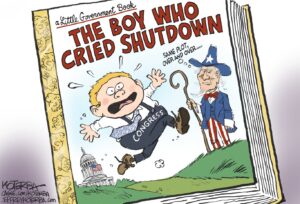
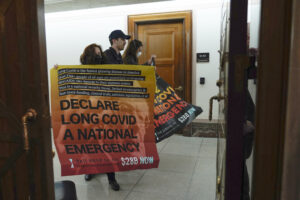
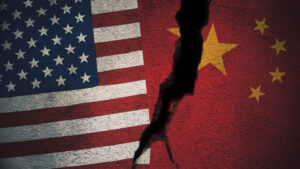
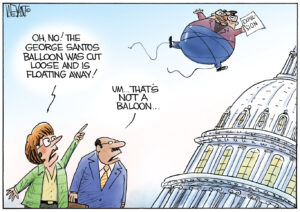

You need to be a supporter to comment.
There are currently no responses to this article.
Be the first to respond.